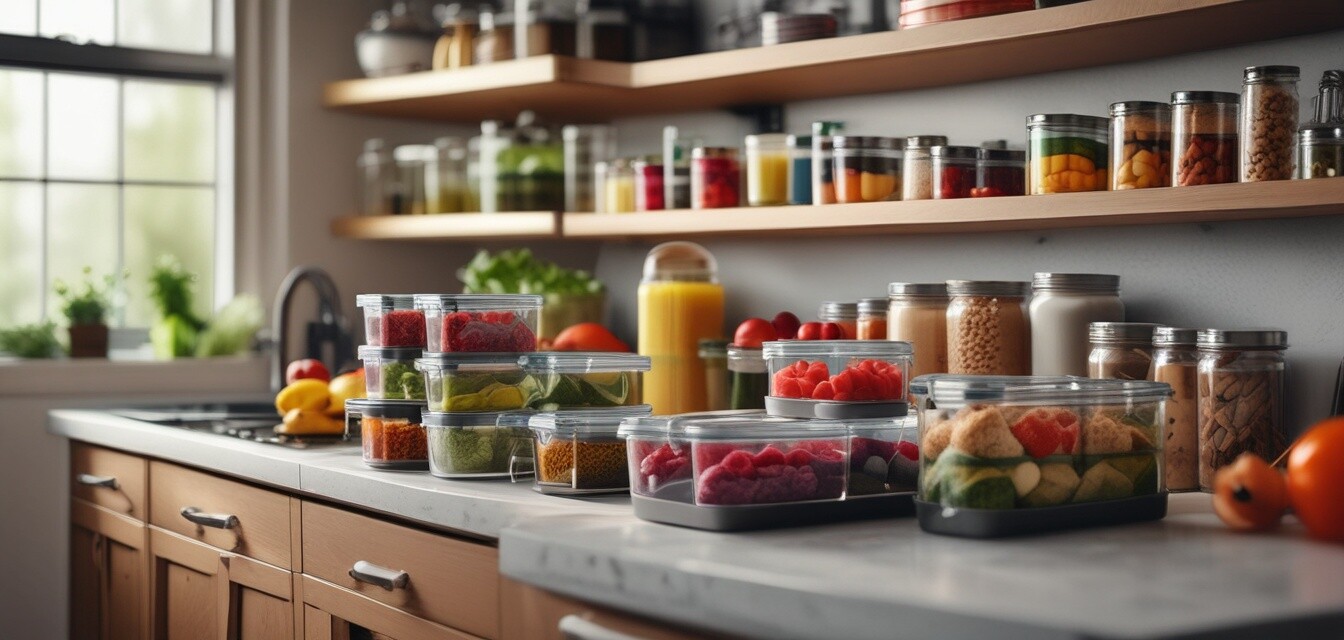
Meal Prepping Basics: Tips for Beginners
Key Takeaways
- Meal prepping can save you time and effort during the week.
- Start with simple recipes and a few basic techniques.
- Invest in quality containers to keep your meals fresh.
- Plan your meals ahead of time to maximize efficiency.
Welcome to meal prepping! A starter guide designed to introduce you to easy strategies that will transform your weeknight dinners. By adopting meal prepping, you can significantly reduce stress during busy evenings, leaving you with more time to enjoy your meals. Let's explore some fundamental tips to help you get started and make the most out of your time in the kitchen.
What is meal prepping?
Meal prepping is the process of preparing your meals in advance. This can mean cooking entire meals or simply preparing ingredients for quicker assembly later. It's a strategy that caters to people with busy lifestyles who still want to enjoy home-cooked food.
Benefits of meal prepping
- Saves time during the week
- Reduces food waste
- Myriad of options for meals
- Healthier eating habits
Getting started with meal prepping
To kickstart your meal prep journey, consider following these steps:
1. Plan your meals
Before you begin cooking, it’s essential to plan your meals for the week. Look for recipes that are easy to prepare and store well. Here are some popular options:
| Meal | Prep Time | Storage Options |
|---|---|---|
| Chicken stir-fry | 30 minutes | Refrigerator or freezer |
| Quinoa salad | 20 minutes | Refrigerator |
| Vegetable soup | 40 minutes | Refrigerator or freezer |
2. Choose your containers wisely
Investing in good-quality containers is vital for keeping your prepped meals fresh. Consider looking into the following types:
- Glass containers: They are durable, microwave-safe, and great for reheating.
- Plastic containers: Lightweight and perfect for sandwich meals.
- Divided containers: Ideal for portion control and various meal components.
3. Batch cook and store
Batch cooking allows you to prepare multiple meals at once. Dedicate one day a week to this task, and store meals in individual portions. Here are simple cooking methods to consider for batch cooking:
- Roasting vegetables
- Grilling meats or fish
- Cooking grains like rice or quinoa
4. Keep it simple
As a beginner, it’s essential to stick to straightforward recipes. Avoid complex dishes that require lengthy cooking times. Start with familiar ingredients and gradually incorporate new recipes into your routine.
Tips for successful meal prepping
Tips for successful meal prepping
- Incorporate seasonal ingredients to keep meals fresh.
- Use a meal planner or app to organize your recipes.
- Label your containers with dates to keep track of freshness.
- Make use of leftovers creatively in your next prep.
Common mistakes to avoid
- Not having a clear plan before starting.
- Choosing overly complicated recipes with long cook times.
- Forgetting to mix up the meals to avoid monotony.
- Neglecting to invest in quality containers.
Pros
- Time-efficient meals throughout the week
- Healthier food choices with home-cooked meals
- Less stress in meal preparation
Cons
- Initial time investment required to prepare meals
- Need to find adequate storage space
- Risk of food spoilage if not stored correctly
Wrapping up
Meal prepping can be a game-changer for busy schedules, helping you eat healthier without sacrificing too much time. Remember to start simple, invest in the right tools, and have fun with your meals. For more tips on improving your kitchen skills, check out our Tips and How-To's section!
With these tips in mind, you are now ready to take the plunge into meal prepping, making your weeknights hassle-free. You can effectively conquer your kitchen tasks and enjoy flavorful and nutritious meals throughout the week!